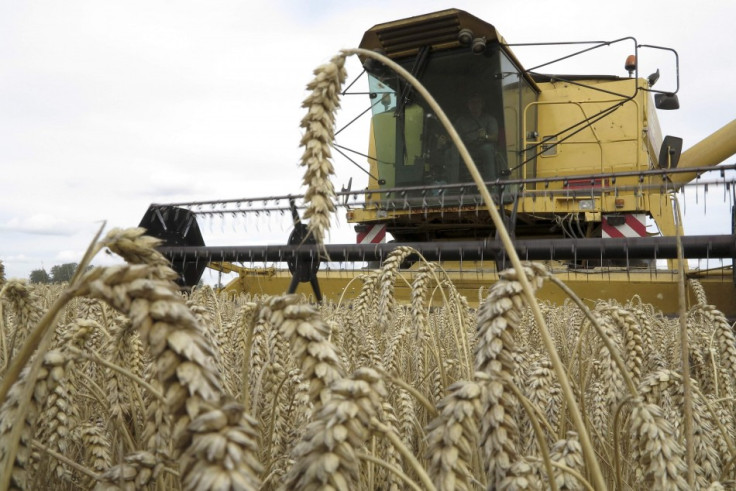Aggressive fungal strains pose threat to UK wheat production

A plant fungus found in the UK, including a previously found strain affecting resistant wheat varieties, could pose a major threat to wheat production in the country.
Using a new diagnostic technique, called field pathogenomics, researchers from the John Innes Centre and The Genome Analysis Centre (TGAC), UK found exotic and aggressive strains of the fungus Puccinia striiformis f. sp. Tritici (PST) in many counties.
"Yellow rust" caused by the fungus is one of the major diseases affecting wheat crop and is widespread across major wheat-producing areas of the world. Grain quality and yield are significantly lowered by the fungal infection.
New fungus strains that adapt to warmer temperatures have emerged recently.
The study was published in Genome Biology.
Lead author Diane Saunders said: "Increased virulence, globalisation, and climate change, are all increasing the scale and frequency of emerging plant diseases, and threatening global food security.
"Our research shows that in the UK we have a newly emerging population of wheat rust fungus that could be the result of an influx of more exotic and aggressive strains that are displacing the previous population. By continuing to use these new surveillance techniques, not only can we track and respond to the ongoing threat of wheat rust, but our technology opens the door for tracking other plant pathogens, including ash dieback."
The researchers sequenced genetic material from 39 PST-infected samples of wheat collected from 17 UK counties in 2013.
On comparing the fungal RNA with previously prevalent populations between 1978 and 2011, they detected a rapid and dramatic shift in the PST population with serious implications for wheat production in the UK.
The genetic variation and diversity seen in the samples reflect an increase in the evolutionary potential in the UK pathogen population that could help it to overcome disease resistance in wheat.
Of the samples, 11 were also genetically similar to a PST strain called "Warrior". The strain emerged in 2011 as a serious threat to European wheat production due to its virulence on an array of previously resistant wheat varieties.
This new diagnostic technique is fast and provides detailed information.
Extreme weather affects harvest
A recent study has highlighted the effect of extreme weather on wheat production. Wheat harvest is likely to be reduced by 6% per each degree Celsius of local temperature increase if no adaptation takes place, it said while noting that rising temperatures are shortening the time frame for wheat crop to mature, resulting in less grain produced from each plant.
Every degree of rise in local temperature could result in around 40 million tonnes of global yield reduction in wheat, amounting to a loss of a quarter of current global wheat production.
The researchers tested 30 different wheat crop models with field experiments where mean temperatures in the growing season ranged from 15 °C to 26 °C.
Vara Prasad, professor of crop ecophysiology and director of the USAID Feed the Future Sustainable Intensification Innovation Lab at Kansas State University, who was part of the team, said. "Simply looking at the average temperature doesn't really show us anything because it's the extremities that are more detrimental to crops. Plants can handle gradual changes because they have time to adapt, but an extreme heat wave or cold snap can kill a plant because that adjustment period is often nonexistent."
The findings were published in Nature Climate Change.
Research from the International Institute for Applied Systems Analysis has warned that increased temperature and changing precipitation levels, along with the increased CO2 atmospheric concentration could lead to between an 18% decline in global caloric production from cropland to as much as a 3% increase by 2050.
© Copyright IBTimes 2025. All rights reserved.



















